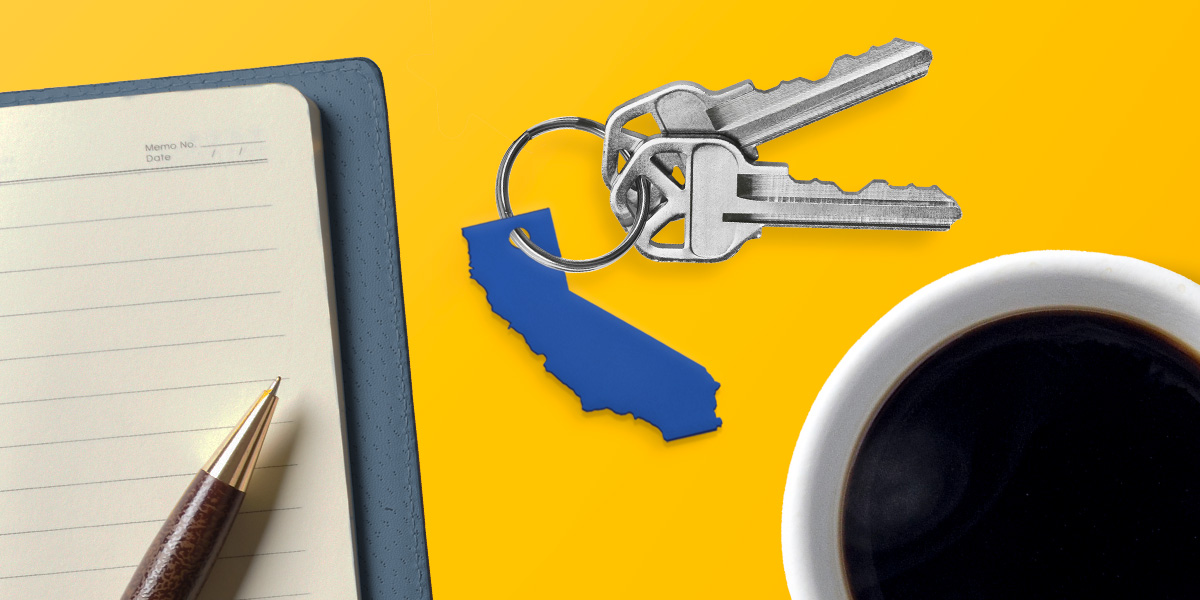-
Personal Banking -
Insights
What Fed Rate Cuts Mean for Homebuyers
Whether they are first-time buyers or repeat buyers, many home shoppers make decisions that are heavily influenced by mortgage rates. After all, a seemingly small difference in rate from 6.5% to 7.0% can bump up a monthly mortgage payment by $150 per month from $2,844 to $2,994 on a $450,000 mortgage loan.
Mortgage interest rates lingered at historically low rates for more than a decade from 2010 through the Covid pandemic in 2020, when they dipped below 3%. But those rates would eventually be shaken up by a strong economy and inflation. In March 2022, the Federal Reserve began raising interest rates to help control inflation, which in turn caused mortgage rates to rise to the highest level they've been in more than a decade.
By November 2023, the average mortgage interest rate increased to well above 7%, a number that would hold steady well into 2024.
In September 2024, the U.S. Federal Reserve lowered the federal funds rate, sparking new enthusiasm for home buyers about potentially lower mortgage rates. But the housing market isn't set to deliver drastic improvements for homebuyers just yet — and experts don't expect rates to drop to pandemic lows.
What might a lowering rate environment mean for today's homebuyers?
What Does it Mean When the Fed Cuts Interest Rates?
First, it can be important to understand exactly how the Federal Reserve's actions impact the housing market.
The Federal Reserve meets eight times a year to discuss economic conditions and evaluate its policies, including the federal funds rate. The federal funds rate, also called the “overnight” rate, is the target rate range that banks charge each other for short-term lending to meet their reserve requirements.
The federal funds rate was set to zero during the pandemic to stimulate economic growth and to keep unemployment in check. But when inflation spiked, the Fed raised interest rates 11 times between March 2022 and July 2023. The Fed lowered rates by half a percentage point in September 2024 and many economists anticipate several more rate drops in 2025, depending on economic conditions.
While mortgage rates are not directly tied to the Federal Reserve’s federal funds rate, they tend to follow the upward or downward trajectory of interest rates.
What Happens When the Fed Cuts Interest Rates?
The Fed doesn’t directly control interest rates on mortgages, loans or credit cards, but its rate cuts influence what financial institutions charge, which is known as the prime rate. Simply defined, the prime rate is a foundational rate that banks can use to set the rates on its lending products.
Whether a person gets a gets a rate lower or a higher than the prime rate on a loan can depend on many factors, including their credit score.
While most banks can set their own prime rate, most banks use the U.S. Prime Rate, which is based on the rate set by the Fed. Predictions about Fed rate cuts influence investor decisions and the performance of stocks and bonds. When the Fed cuts interest rates – or is even expected to cut rates – mortgage rates often decline.
When mortgage rates are dropping, this can have a ripple effect on the housing market, creating both opportunities and challenges for homebuyers.
Some of the potential impacts of lower mortgage interest rates include:
- An increase in affordability. Housing affordability, which is impacted by home prices and mortgage rates, has declined in recent years as housing stock has decreased and both prices and rates have risen. A lower mortgage rate can have a significant impact on monthly payments. Analysis by the National Association of Realtors found that a 1% mortgage rate decrease can reduce a monthly housing payment as much as a 10% reduction in the home price.
- It may be easier to qualify. Lenders rely on multiple factors to qualify borrowers for a loan, including the debt-to-income ratio, which compares your minimum monthly payment on all recurring debt to your gross monthly income. A lower mortgage rate means you’ll pay less interest on the loan, which reduces your payment and improves your debt-to-income ratio. In addition, a lower monthly mortgage payment in comparison to your income is viewed as less risky to lenders.
- Demand may increase. Potential homebuyers have been watching interest rates to see when they go down, so there is likely to be increased competition as mortgage rates decline. Many housing markets already have a short supply of homes for sale, so buyers may face bidding wars for homes.
- Home prices may rise. If demand increases and the supply of homes remains low, prices are likely to rise. That means buyers looking forward to more affordable monthly payments may face larger-than-expected expenses.
- Supply may increase. One reason for the housing shortage is that nearly 60% of homeowners with a mortgage have an interest rate under 4%. Those homeowners may be less willing to sell their homes and buy at a significantly higher interest rate. But with mortgage rates dropping, they could decide to put their homes on the market. That could ease the housing shortage in some areas.
How Do Rate Cuts Affect Mortgage Rates?
Banks and other lenders won’t necessarily drop their mortgage rates in response to the Fed’s rate cut. Mortgage rates fluctuate based on a variety of factors, including economic indicators such as inflation and unemployment.
Generally, 30-year, fixed mortgage rates closely correlate with the 10-year Treasury yield, which is heavily impacted by a Fed rate cut. The Treasury yield often declines in anticipation of a federal funds rate decision, which is partly why mortgage rates began to decline before the Fed’s official announcement of a half percentage point (50 basis points) cut in September 2024.
An analysis of historical data by the National Association of Realtors found that a 100-basis point rate cut typically leads to an 87-basis point drop in mortgage rates.
Of course, your mortgage rate will depend not only on average rates, but also on your financial circumstances, including your credit profile, your down payment and the type of property you buy.
How to Best Prepare for Buying a Home?
When declining mortgage rates impact the housing market, you may want to consider buying your first home, downsizing or moving up into a larger home.
In addition to monitoring mortgage interest rates and home prices, the following steps can help you prepare for a home purchase:
- Improve Your Credit Score. The lowest mortgage rates are reserved for borrowers with the highest credit scores, preferably at least 720 or higher. Reviewing your credit score and taking steps to improve it - such as reducing debt and paying all your bills on time - can contribute to your being able to qualify for a lower mortgage interest rate.
- Check Out Grants Like Ladder Up. Homeownership assistance programs are an option for first-time buyers and even repeat buyers depending on qualifications such as income, home price or location. For example, City National's Ladder Up program offers a grant up to $20,000, or a grant up to $50,000 in select markets. This helps homebuyers save on the costs of buying a home.
- Continue to Budget & Save for Down Payment. An important part of preparing to buy a home is creating a budget that includes a comfortable housing payment along with retirement and other savings. You’ll need cash for moving and closing costs, which often range from 2% to 5% of the home's value, and a down payment, which can range from 3% to 20% or more.
- Consider Loan Length & Terms. Part of your budgeting process should be to consult a lender to review your borrowing options, such as whether you want a 30-year or 15-year loan, how much your down payment should be, and whether you prefer a fixed-rate or an adjustable-rate mortgage in the context of your long-term financial plan.
- Lock in Your Rate. Once you’ve identified the loan program you prefer, ask your lender about locking the rate for a specific period of time. That way you don’t need to worry about mortgage rates changing before your closing.
If you’re considering buying a home, this is a good time to connect with your financial advisor to explore your financing options. It's also a great time to turn to our homebuying resources to learn more about the process.
This article is for general information and education only. It is provided as a courtesy to the clients and friends of City National Bank (City National). City National does not warrant that it is accurate or complete. Opinions expressed and estimates or projections given are those of the authors or persons quoted as of the date of the article with no obligation to update or notify of inaccuracy or change. This article may not be reproduced, distributed or further published by any person without the written consent of City National. Please cite source when quoting.
Loans and lines of credit are subject to credit and property approval. Additional terms and conditions apply. Not all applicants will qualify.




